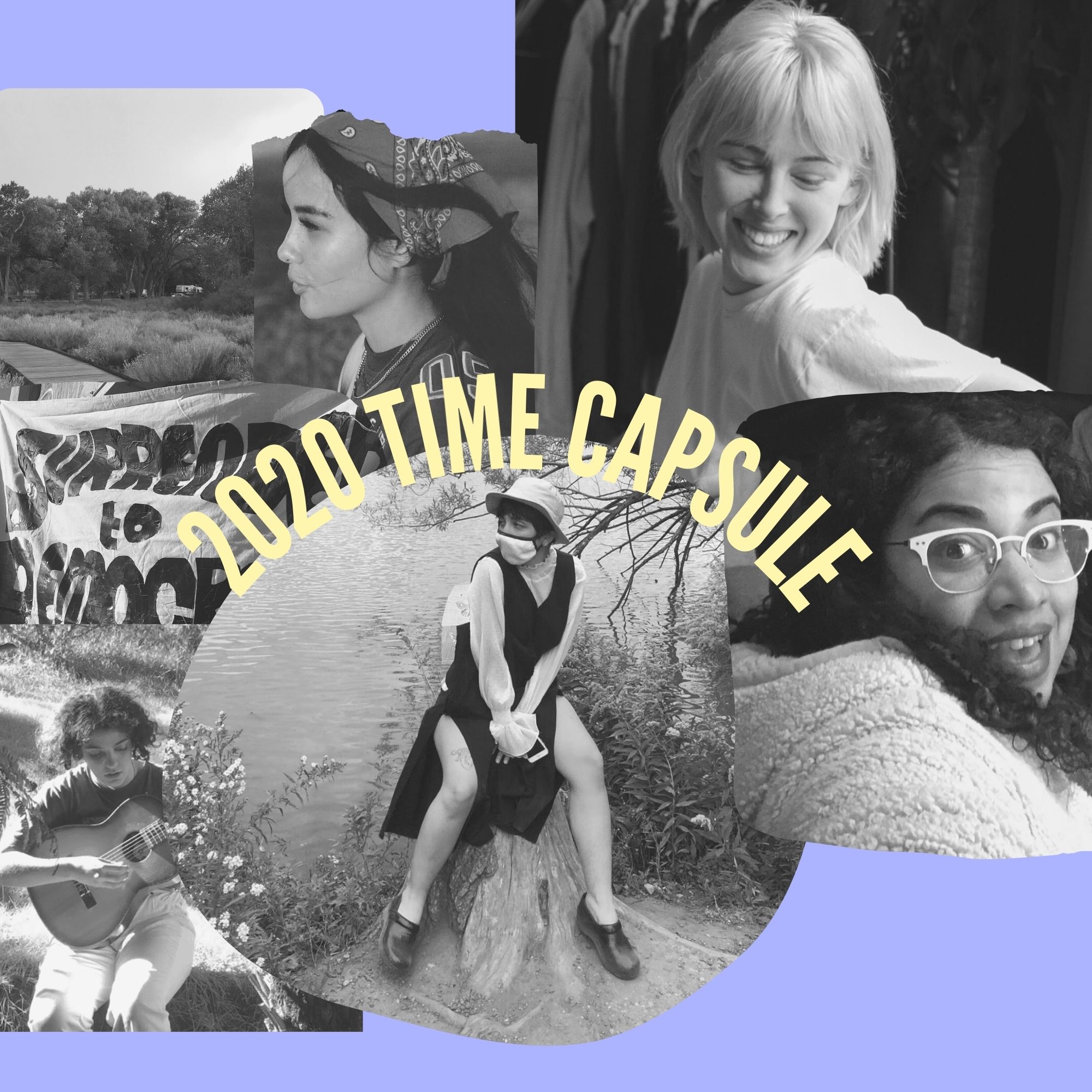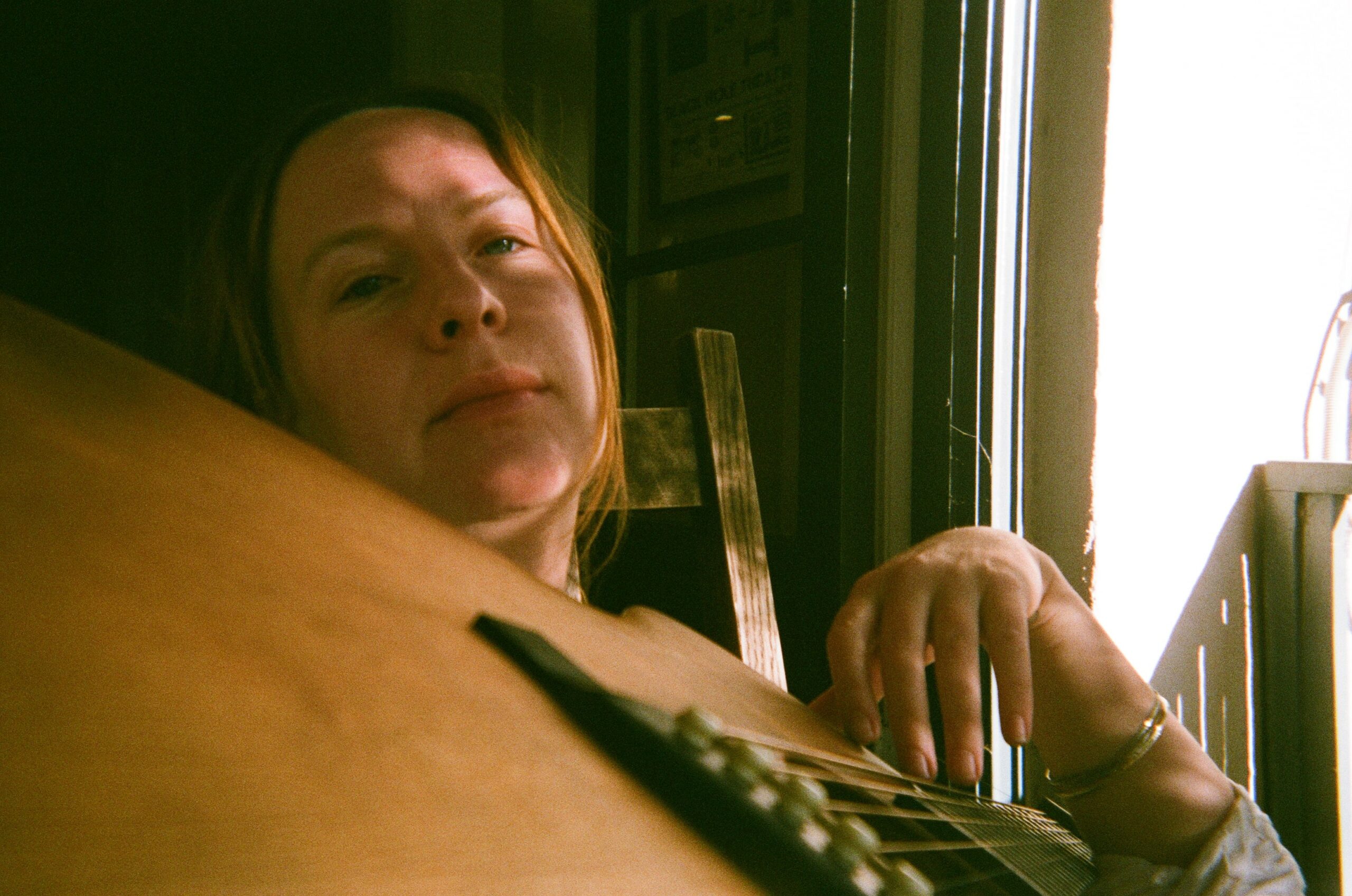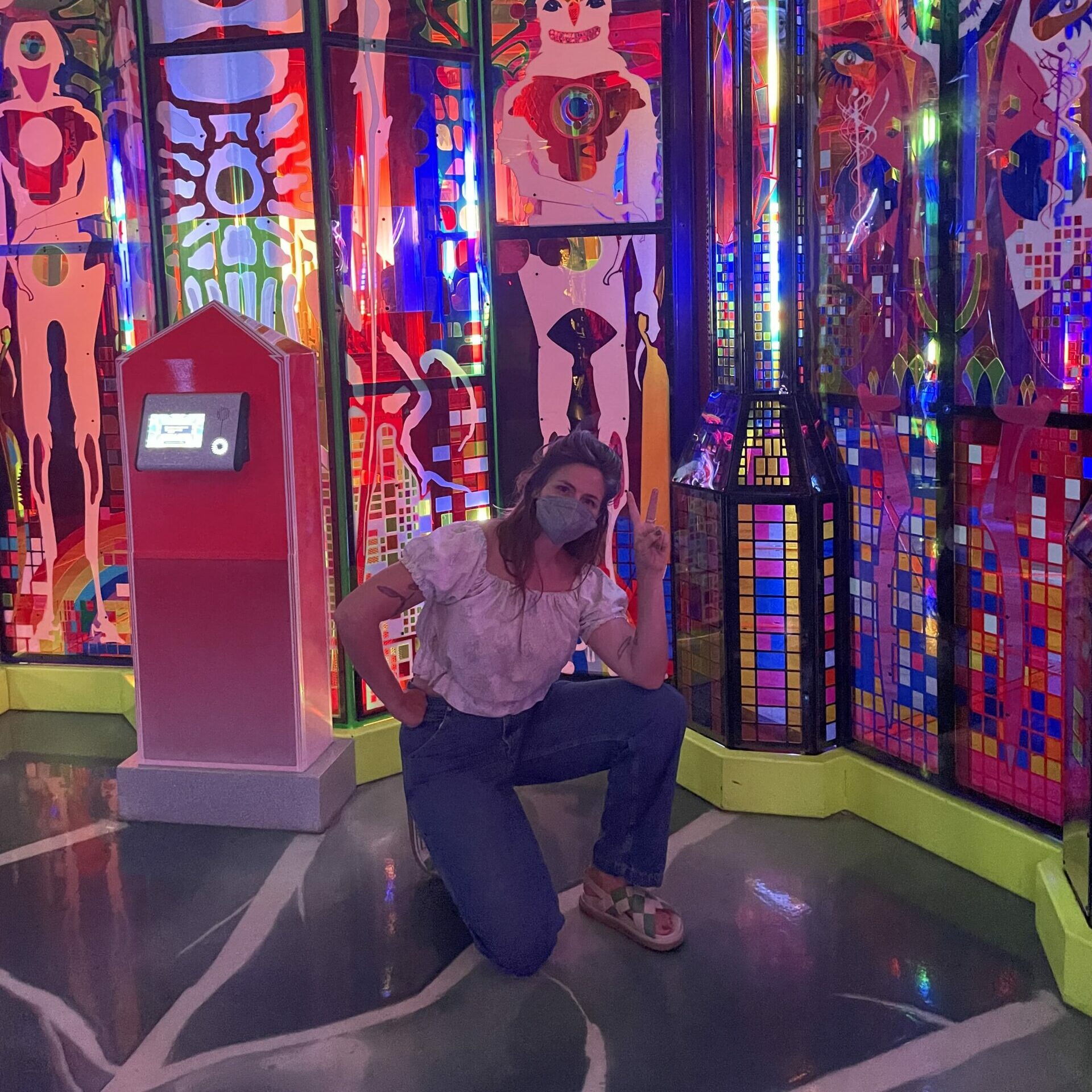When I’m listening to Biitchseat, I feel like I’m having the first frank conversation with myself in ages, but somehow, it’s still fun. For too long now, I have grown accustomed to wallowing in the severity of my own emotions, preventing myself from experiencing the tense cacophony of frustration, relief, and even small victories in the middle of this challenging pandemic. Biitchseat is not satisfied to let negativity simmer – somehow, as every feeling and experience are analyzed, I find myself more and more joyful, ultimately leaving every listen uplifted.
Biitchseat is a Cleveland-based indie punk quartet composed of Talor Smith, Kristin Schmit, Connor Hunt, and Evan Searls. They are stoked to release their Refresh Records debut EP, I’ll become kind., this March. In advance of the release, we got to catch up with Talor and Kris about all things Orch Dork, organizing benefit shows, and vowing the kindness with which we deserve to treat ourselves.
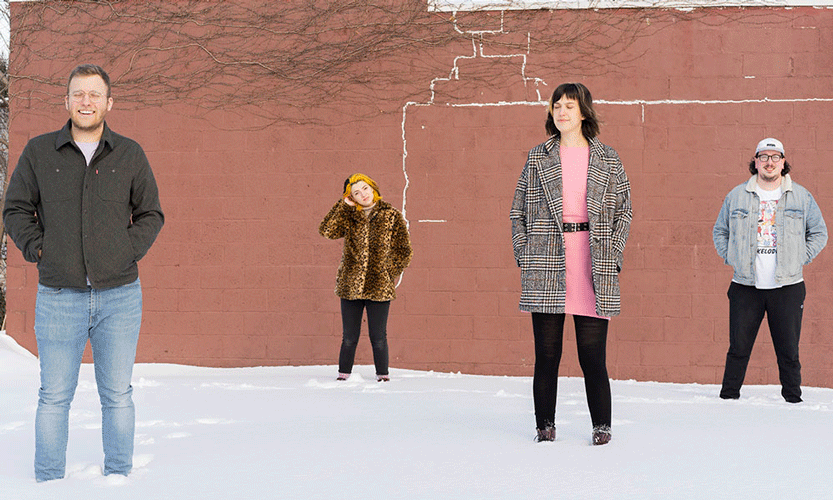
Slumber: I really resonate with the emphasis in I’ll become kind. on patience with one’s self; just this weekend I hit a low point with myself and my life progress. What has it been like to be in the throes of this release at a time when many of us are feeling stuck and lashing out at ourselves?
Talor: The EP title comes from a line in the last song. Overall, it’s about tackling a lifelong battle with perfectionism, emphasizing that at the end of the day, we just want to be people. This is a year where it’s impossible to be perfect. 2020 and 2021 are like, banner years for imperfection.
Slumber: Nice! Outside of music, how do you relieve the pressure you place on yourselves?
Kris: For both me and Talor, writing and playing music is the ultimate de-stresser. It’s how we feel productive. It’s truly what I love more than anything, even if I’m working my day job, music is more fulfilling. I’m working towards the perfect self that way.
Talor: Definitely. All of our songs are basically my diary, except “Anti-depressed” is Evan’s lyrics. My therapy truly is writing. Of course I’m also a big fan of a face mask and TV, or otherwise spending time with my animals too. But music is really the big one.
“...writing and playing music is the ultimate de-stresser. It’s how we feel productive. It’s truly what I love more than anything, even if I’m working my day job, music is more fulfilling. I’m working towards the perfect self that way.”
Slumber: If you could have the release party of your dreams for this EP, what would it look like?
Talor: It would definitely be at Mahall’s here in Cleveland. One of our last shows was the end of 2019, it was a release show for our first album, To Name All the Bees in the Backyard. If we could do that over again with Punch Drunk Tagalongs and String Machine from Pittsburgh, that would be ideal. Mahall’s is just the epicenter of our Cleveland scene, it would mean more than anything to play there again with our people.
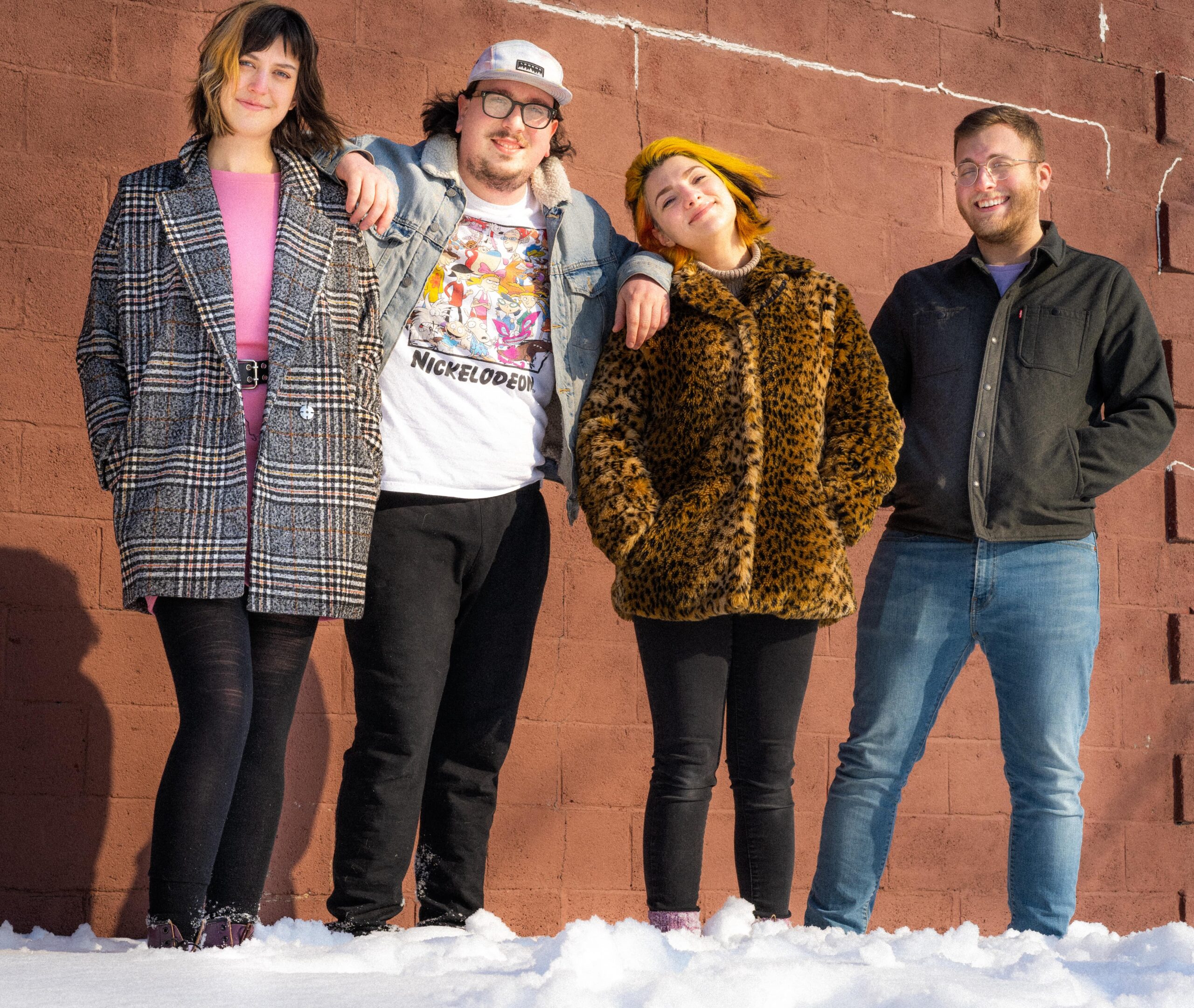
Slumber: I’m drawn to the EP’s artwork – it stands out in contrast from your previous projects’ emphasis on older, unearthed photography. Was there something that shifted between Bees and kind. that inspired that change?
Kris: We had kinda done the childhood photo thing for everything before, and it’s fun. We got to feel like that’s overdone in the DIY scene, so we wanted to completely depart from it. We decided to commission an artist for this EP. Talor was super drawn to a watercolor style. We all love bright colors and we looked to nature for the themes. We found Violet Hill, who I went to high school with, she’s big on Instagram. Talor and I decided she’d be perfect and she nailed it. The colors, the objects she included, we felt like even though it was a departure from the past, it still represented Biitchseat’s sound and the sound of the EP very well. It’s a little bit dark in a way, but the colors are so vibrant.
Talor: When we emailed her what the songs “meant” (which I don’t like to do, everyone should have the space to take their own meaning from everything), she sent us the artwork with a list on why she included every object and made every artistic decision and really, really nailed it. It honestly got me misty-eyed, she really nailed it.
“Mahall’s is just the epicenter of our Cleveland scene, it would mean more than anything to play there again with our people.”
Slumber: Definitely! I think I heard the host on Fly on the Call describe it as looking like candy. As a lifelong Clevelander, I’m always super excited to interact with musicians from here. With this pandemic, is there anything new that you’ve discovered about Cleveland and its music community?
Kris: I haven’t necessarily discovered anything too new to me, I just miss them.
Talor: It’s just made me more aware of how strong we are. I don’t know of any Cleveland bands who aren’t gonna “make it” through this. People are just plowing through. This experience has just made me prouder to be a part of the community here. It’s an obnoxious Clevelander thing to be extra proud like that, but it’s true!
Slumber: In Cleveland, we’re lucky enough to have the Panza Foundation, who recognized Biitchseat as part of their class of 2020. What effect did that have on you all?
Talor: That was super great. With the money, we could stock up on a lot of gear like new drumsticks, strings, drumheads. Nothing fun. We are apocalyptically packed up on those basics. He also helped us with recording. John Panza is wonderful, that was a huge honor.
Kris: He’s also just a well-connected dude and a veteran of the Cleveland music scene. It’s a nice thing to have that connection going forward. If we needed to get connected for booking in another city or advice in general, he’s there. I’d like to think we’ve made a lifelong friend. It just meant a lot to be validated like that.
“I don’t know of any Cleveland bands who aren’t gonna “make it” through this. People are just plowing through. This experience has just made me prouder to be a part of the community here.”
Slumber: And in a similar vein, Biitchseat played a huge role in organizing the Roe Yeah! benefit festival to protect abortion access and rights. If you could organize another benefit fest, what would you want it to be like?
Talor: I’ve never booked before and I booked 12 acts for that show. It was so much work. That’s not an easy job, that stuff sucks! Huge respect for full-time bookers. You’re constantly poking people over email, but so worth it. NARAL is great, Hannah is so fun to work with. It was a formative experience.
Kris: That was interesting because we wanted to get some big outside act from like Philly or Chicago to come through as well to headline, but that was so hard as a benefit. We couldn’t really pay them, so it turned into this big local band fest. We’d love to see that again, with this pandemic especially. That community is our people and I wanna see them again more than anything!
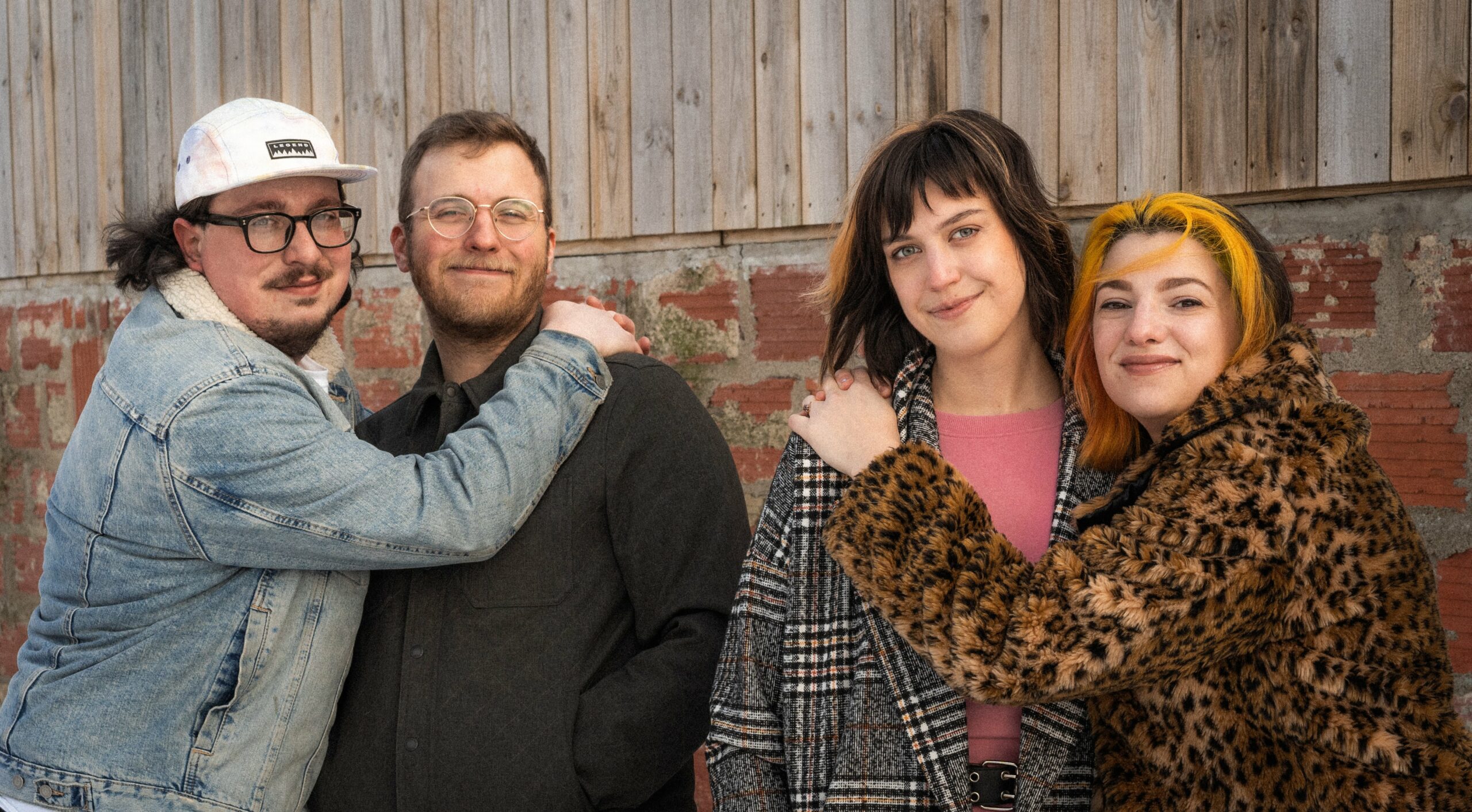
Slumber: It also struck me to hear that several of you originally met as cellists. How has the orchestral experience informed your approaches to writing and performing?
Talor: In every single way! Kris, Connor, and I are all cellists. I met Connor in high school orchestra, Kris in college orchestra; we’re all orch dorks in the end. I went to school for music composition for two years at OU, primarily writing pieces for string quartets. Much of what we write is in that kind of format. Everything is interwoven, and there’s very few moments where something is simple. Everyone has a fleshed-out role like in a quartet. It’s also affected the way we practice. There’s a ton of metronomes. Our poor drummer has learned to put up with so much of that and we don’t even hear it anymore. We’ll have string sectionals as a threesome like a cello section, getting super meticulous. There are so, so many ways that starting in an orchestra setting has affected how we work together as a band, it’s huge.
Slumber: What could orchestral spaces learn from DIY communities?
Talor: SO much, mainly accessibility. Classical environments are not accessible. Instruments and lessons are crazy expensive, entitlement is rampant, there’s just a lot of issues. I think it’s leading to a decline in interest in classical music. It’s a huge time commitment for very little payoff. If classical spaces could walk away with anything, I would love to hear some relaxation. General band spaces understand that it’s happening for the love of the music. It’s not necessarily about the perfection of it all, it’s about the experience of it all. Sometimes, classical environments don’t follow that, but I wish they would.
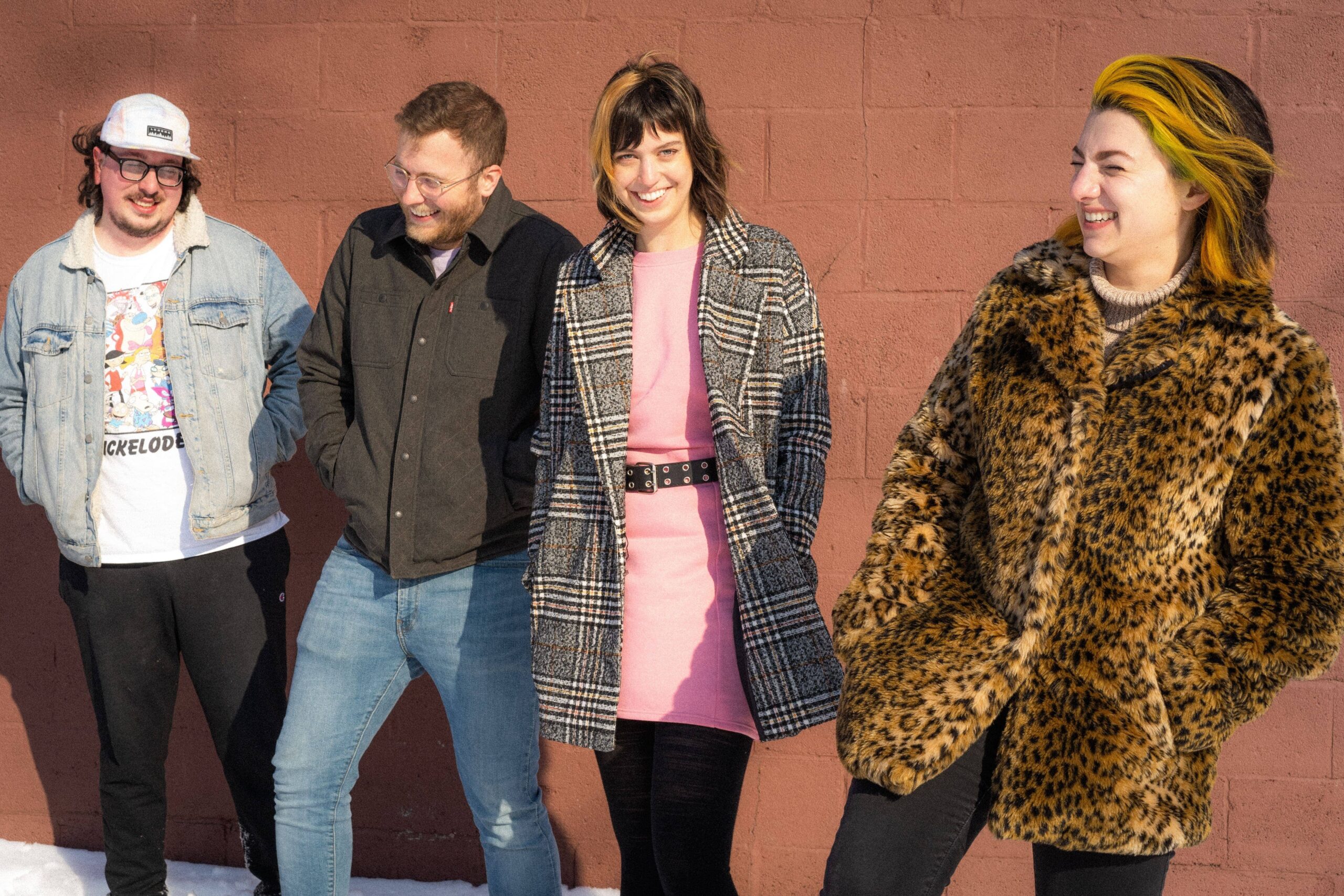
Slumber: Do you have any advice for folks in super traditional music/artistic spaces who are looking to jump into flexible DIY spaces?
Talor: I would say—don’t limit the people you hang out with. In college, if I would’ve just hung out with music students, I would have lost my mind. They weren’t nice all the time. It was an extremely intense social experience. Once I started reaching out to band-having musicians and people who aren’t so intense, I really felt like I could be creative. Also the intensity of classical makes perfect sense, I’m not knocking anyone who goes down that path. You need that kind of intensity to survive in that space right now, unfortunately. But really, reach out to community spaces in order to get the full perfection. It’s not just classical music, there’s so much more.
Kris: Find someone else who’s starting out, too. Talor and I made the leap together. We both decided to put down our cellos and pick up guitars as one. We started learning together and I wouldn’t have gotten here without that. It was a total buddy system success story. Just look for that more relaxed environment.
Talor: BE KIND TO YOURSELF! None of us are perfect, there’s a beauty in messing up.
Check out Biitchseat’s latest EP I’ll become kind. below:
